The streaming landscape is more crowded than ever, and two titans consistently battle for viewers' attention (and subscription dollars): Hulu and Netflix. Choosing between them – or deciding if you need both – involves navigating a complex web of pricing tiers, content libraries, user experiences, and ever-evolving features.
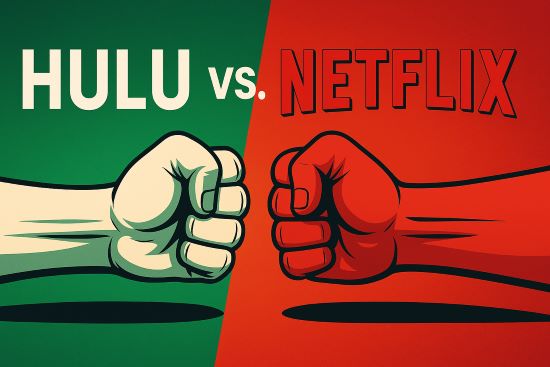
As we head deeper into 2025, understanding the nuances of each service is crucial for making the right choice for your entertainment needs. This report dives deep into the Hulu vs. Netflix comparison, examining everything from cost and content to user interface and the often-frustrating world of offline downloads.
Part 1. Price of Hulu Vs. Netflix
Cost is often the first hurdle when picking a streaming service. Both Hulu and Netflix offer multiple subscription tiers, but their pricing strategies and the features unlocked at each level reveal different approaches to value.
Hulu's Pricing Structure:
Hulu (With Ads)
Hulu (No Ads)
Hulu + Live TV Plans
Bundles
Netflix's Pricing Structure:
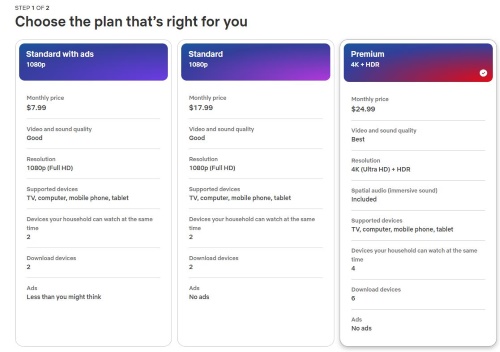
Standard with Ads
Standard
Premium
Key Pricing Takeaways:
Hulu attracts users with low ad-supported prices, student discounts, and bundles (often with Disney+), aiming to upsell or rely on ad revenue. In contrast, Netflix focuses on premium features (like 4K, more streams/downloads) available only on its higher-priced Premium plan, having removed its cheapest ad-free option. Netflix also charges extra for sharing accounts outside the household , while Hulu sticks to a standard household limit , which might be simpler for some. Additionally, Hulu offers a 30-day free trial, but Netflix does not.
Here's a quick comparison table:
| Feature | Hulu (Basic/With Ads) | Hulu (No Ads) | Netflix (Standard w/ Ads) | Netflix (Standard) | Netflix (Premium) |
|---|---|---|---|---|---|
| Monthly Price | $9.99 | $18.99 | $7.99 | $17.99 | $24.99 |
| Ads? | Yes | Mostly No* | Yes | No | No |
| Streams | 2 | 2 | 2 | 2 | 4 |
| Max Quality | Up to 4K (Select) | Up to 4K (Select) | Full HD (1080p) | Full HD (1080p) | 4K Ultra HD + HDR |
| Offline Downloads | No | Yes (Ad-Free Only) | Yes (15/month limit) | Yes (100 active) | Yes (100 active) |
| Download Devices | N/A | 5 mobile devices | 2 | 2 | 6 |
| Extra Member | No | No | No | 1 (+$8.99/mo) | 2 (+$8.99/mo each) |
| Free Trial | Yes (30 days) | Yes (30 days) | No | No | No |
Part 2. The Content Battleground: What to Watch on Hulu and Netflix
While price matters, content reigns supreme. Deciding which library better suits your tastes requires looking beyond sheer numbers (though market share data places Netflix and Amazon Prime Video as US leaders, with Hulu further behind 25) and examining the types of content and release strategies each platform prioritizes.
Original Programming:

Netflix: The undisputed king of original content quantity, Netflix offers "mountains" of exclusive series, films, documentaries, and specials. Massive global hits like Stranger Things, Bridgerton, The Crown, and Squid Game define pop culture conversations. The platform also invests heavily in international productions, anime, and stand-up comedy. However, this firehose approach leads some users to complain about inconsistent quality ("more junk") and the frustrating tendency to cancel beloved shows prematurely.
Hulu: While its original library is smaller, Hulu has earned a reputation for quality and critical acclaim, often perceived as having a better hit rate than Netflix. Standout originals include The Handmaid's Tale, The Bear, and Only Murders in the Building. Hulu also benefits significantly from being the streaming home for acclaimed FX originals.
Licensed TV Shows & Next-Day Airings:
Hulu's Forte: This is where Hulu truly shines for many US viewers. Its biggest differentiator is the next-day availability of current season episodes from major broadcast and cable networks (primarily Disney-owned like ABC, Fox, FX). This makes Hulu an ideal replacement for cable for those who want to stay current with network television without a traditional subscription. Hulu also boasts a deep back-catalog of popular network comedies and dramas (like Seinfeld, South Park, It's Always Sunny in Philadelphia) and reportedly had a larger overall TV show library than Netflix in 2023.
Netflix: Netflix generally doesn't offer next-day airings of current network seasons. Its licensed TV library consists mainly of older seasons of popular shows, though the availability of these titles frequently changes as licensing deals expire (e.g., the high-profile losses of Friends and The Office).
Movie Libraries:
Netflix: Features a vast movie library with a significant number of original films, often starring big Hollywood names. While the overall quantity is high, its licensed movie selection might not be as robust in terms of recent blockbusters compared to competitors like Max or Prime Video.
Hulu: While having a smaller overall library than Netflix, Hulu often features a strong, rotating selection of licensed films, including recent additions. Its focus leans more towards acquired movies than original film production compared to Netflix.
Release Strategies:
Netflix: Famous for the "binge model", dropping entire seasons of its original series at once. This caters perfectly to viewers who love to consume a whole story arc in a short period.
Hulu: Primarily follows a traditional weekly release schedule for its originals and offers next-day access for network shows. This builds anticipation and aligns with viewers who prefer the week-to-week viewing experience or want to watch shows as they air broadly.
Specific Genres:
- Anime: Netflix is often highlighted for its strong and growing anime library, including originals and licensed titles. Hulu also has a dedicated anime hub.
- Family Content: Hulu benefits from its Disney ownership, offering access to a wide range of family-friendly content, especially when bundled with Disney+. Netflix also has a dedicated kids' section and profile controls.
- Stand-up Comedy: Netflix has a particularly strong focus on stand-up comedy specials.
Key Content Takeaways
The distinct content strategies reflect the platforms' goals and origins. Netflix, with its massive global subscriber base, focuses on broad-appeal originals suitable for binge-watching worldwide, independent of US broadcast schedules. Hulu, leveraging its historical ties to US networks (now primarily Disney), targets American cord-cutters with timely access to current TV shows, making it a direct cable alternative.
Many users perceive a trade-off: Netflix offers quantity, but quality can be inconsistent. Hulu's library is smaller but often seen as higher quality and more curated, especially with its originals and FX content.
Finally, the dynamic nature of licensing deals means that non-original content can disappear from either platform. This constant churn emphasizes the long-term value of original content (which stays) and can make reliable offline access to licensed favorites particularly appealing before they vanish.
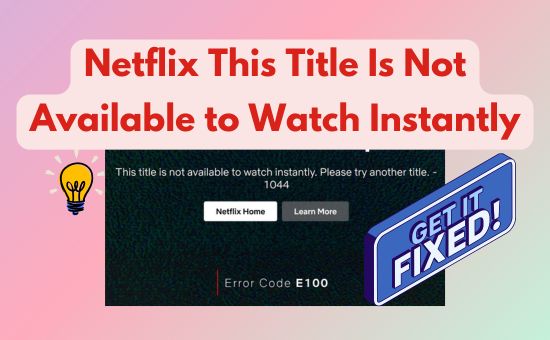
Netflix title is not available to watch instantly? Way 1. Ensure you type the correct URL. Way 2. Sign out and sign in again. Way 3. Check your Net...
Part 3. Hulu Vs. Netflix: User Experience and Key Features
While content might draw you in, the day-to-day user experience can determine whether you stick around. Interface design, device compatibility, streaming quality, and ad tolerance all play significant roles.
Interface and Ease of Use:
Netflix: Widely praised for setting the standard in streaming interfaces. Its app experience is often described as "fantastic", fluid, intuitive, and user-friendly. Features like efficient "skip intro" and "skip recap" options and a generally effective recommendation engine enhance usability. Netflix's significant investment in engineering and UX appears to pay off in a smoother overall experience.
Hulu: Frequently receives criticism for its user interface, which users sometimes describe as less intuitive, clunky, laggy, or prone to glitches. Search functionality has also been cited as less effective than Netflix's. On the positive side, some users appreciate the "Hubs" feature for easily finding content grouped by network (like FX or ABC), and at least one comparison found its checkout process superior.
Device Compatibility:
Both Hulu and Netflix offer broad compatibility, available on nearly all major streaming devices, including smart TVs, smartphones (iOS, Android), tablets, web browsers, streaming players (Roku, Fire TV, Apple TV, Chromecast), and gaming consoles (Xbox, PlayStation). Internet speed recommendations vary slightly; Hulu suggests at least 3 Mbps for SD and 16 Mbps for 4K, while Netflix suggests 5 Mbps for HD and 25 Mbps for 4K.
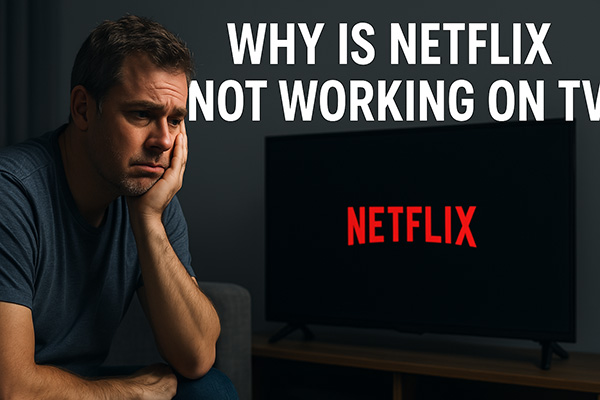
Visit this page to learn more details.
Video/Audio Quality:
Netflix clearly tiers quality based on subscription. Premium subscribers get access to 4K Ultra HD resolution, HDR, and Dolby Atmos/Netflix Spatial Audio where available. Standard plans top out at Full HD (1080p). Hulu's approach is less tied to the plan; while many Hulu Originals and some movies are available in 4K, much of its library, including live TV, streams at HD or Full HD (up to 1080p). Quality is often dependent on the specific show or movie rather than the subscription tier.
The Ad Factor (Hulu's Achilles' Heel?):
While Netflix offers truly ad-free viewing on its Standard and Premium plans, Hulu's relationship with ads is more complex and a frequent source of user frustration.
- Hulu's base plan explicitly includes ad interruptions.
- Crucially, even the premium Hulu (No Ads) plan is not entirely ad-free. Due to streaming rights and licensing agreements, a small list of specific shows (historically including titles like Grey's Anatomy) will still play with short ad breaks before and after episodes. Furthermore, subscribers to Hulu (No Ads) + Live TV may encounter ads within the additional on-demand content provided by network partners, within Cloud DVR recordings (though these can be fast-forwarded), and during natural commercial breaks in live TV streams or linear channels.
This complex reality stems from Hulu's hybrid model, blending subscription video-on-demand (SVOD) with advertising video-on-demand (AVOD) elements and live TV, integrating content with varying ad requirements based on legacy licensing deals. This contrasts with Netflix's historically cleaner separation between ad-supported and ad-free experiences (though Netflix now also navigates the complexities of an ad tier). The result for Hulu users can be confusion and irritation when ads appear despite paying a premium for the "No Ads" experience.
Offline Viewing Introduction:
The ability to download shows and movies for offline viewing is a valuable feature for commuters, travelers, or anyone with unreliable internet. Both Hulu and Netflix offer built-in download features, but with significant limitations that can frustrate users.
For Netflix, downloads expire after a certain period (typically 7-30 days), and once you start watching, many titles expire within just 48 hours. Netflix also imposes download limits—up to 100 active downloads on Standard/Premium plans but only 15 monthly downloads on the ad-supported tier. Additionally, Netflix's 2024 removal of download functionality from its Windows app has been particularly problematic for laptop users.
Hulu restricts downloads to its ad-free tier only and limits them to mobile devices, making laptop viewing impossible without an internet connection..

For viewers frustrated by these limitations, StreamUlt Netflix Video Converter offers a practical solution. This tool allows users to download Netflix content permanently without expiration dates, save files in universal MP4 or MKV formats with original quality and subtitles intact, and view downloaded content on any device—including laptops. For frequent travelers, users with data limits, or those wanting to preserve access to favorite shows before they leave the platform, StreamUlt effectively bridges the gap left by Netflix and Hulu's restrictive native download features.
Part 4. The Verdict: Hulu or Netflix in 2025?
Choosing between Hulu and Netflix in 2025 boils down to individual priorities. There's no single "better" service; the right choice depends on what you watch, how you watch it, and what you value most in a streaming platform.
Here's a quick summary of the key pros and cons:
| Feature Area | Hulu | Netflix |
|---|---|---|
| Pricing/Value | Lower entry price (ads), student discount, strong bundle value (Disney+/ESPN+/Live TV/Max) 1 | Higher cost for ad-free/premium features, paid extra members, no free trial 11 |
| Original Content | Smaller library, often higher perceived quality (e.g., The Bear, Handmaid's Tale, FX) 12 | Massive library (quantity leader), global hits (e.g., Stranger Things), variable quality 5 |
| Licensed/Network TV | Key Strength: Next-day airing of current network shows, strong back-catalog 6 | Limited next-day access, rotating library of older seasons 6 |
| Movie Library | Good rotation of licensed films 5 | Large library with many original films, fewer recent licensed blockbusters 5 |
| User Experience (UI) | Often criticized as clunky/laggy 31 | Key Strength: Smooth, intuitive, industry-standard interface 5 |
| Ad Experience | Key Weakness: Ads on base plan; ads still present on some content in "No Ads" plan 24 | Truly ad-free on Standard/Premium plans 28 |
| Offline Downloads (Native) | Ad-free plan only, standard mobile device support 6 | Key Weakness: No Windows app support, expiring downloads, quantity/yearly limits 53 |
| Key Strength Overall | Next-day TV, Bundles, Critically acclaimed originals | Original content volume, User Experience, Binge model, Global reach |
| Key Weakness Overall | Confusing ad policy, Interface issues | Download limitations, Cost, Content churn |
Who Should Choose Hulu?
- Cord-cutters prioritizing current TV: If staying up-to-date with shows on ABC, Fox, FX, and other networks the day after they air is essential, Hulu is the clear choice.
- Fans of critically acclaimed dramas and specific network libraries: Viewers seeking high-quality originals like those from Hulu and FX, or who enjoy deep dives into network back-catalogs, will find significant value.
- Budget-conscious viewers (or students): If you don't mind watching ads, Hulu's base plan offers a lot of content for a lower price than Netflix's ad-free options. The student discount is also a major perk.
- Bundle seekers: Anyone interested in combining streaming with Disney+, ESPN+, Live TV, or Max can find compelling package deals through Hulu.
Who Should Choose Netflix?
- Binge-watchers: If you love consuming entire seasons in one go, Netflix's release model is tailor-made for you.
- Original content enthusiasts: Viewers looking for the sheer volume and variety of original series, movies, documentaries, international shows, and anime will find Netflix's library unparalleled.
- Users demanding a premium experience: Those who prioritize a seamless, polished user interface and a truly ad-free experience (on Standard/Premium tiers) will likely prefer Netflix.
- Larger households or quality fanatics: The Premium plan's support for 4 simultaneous streams and 4K/HDR/Atmos quality caters to families or viewers with high-end home theater setups.
Can You Have Both?
For avid streamers, Hulu and Netflix offer complementary content libraries – Hulu for current TV and specific originals, Netflix for its vast original catalog and bingeable series. However, subscribing to both, especially ad-free tiers, represents a significant monthly cost.
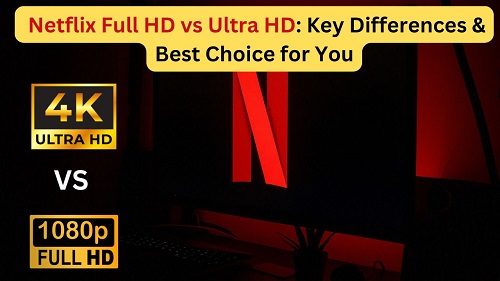
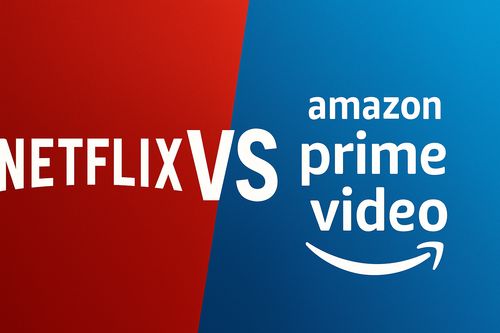
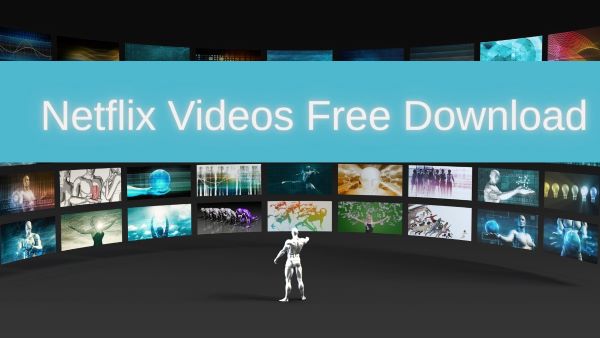

Leave a Comment (0)